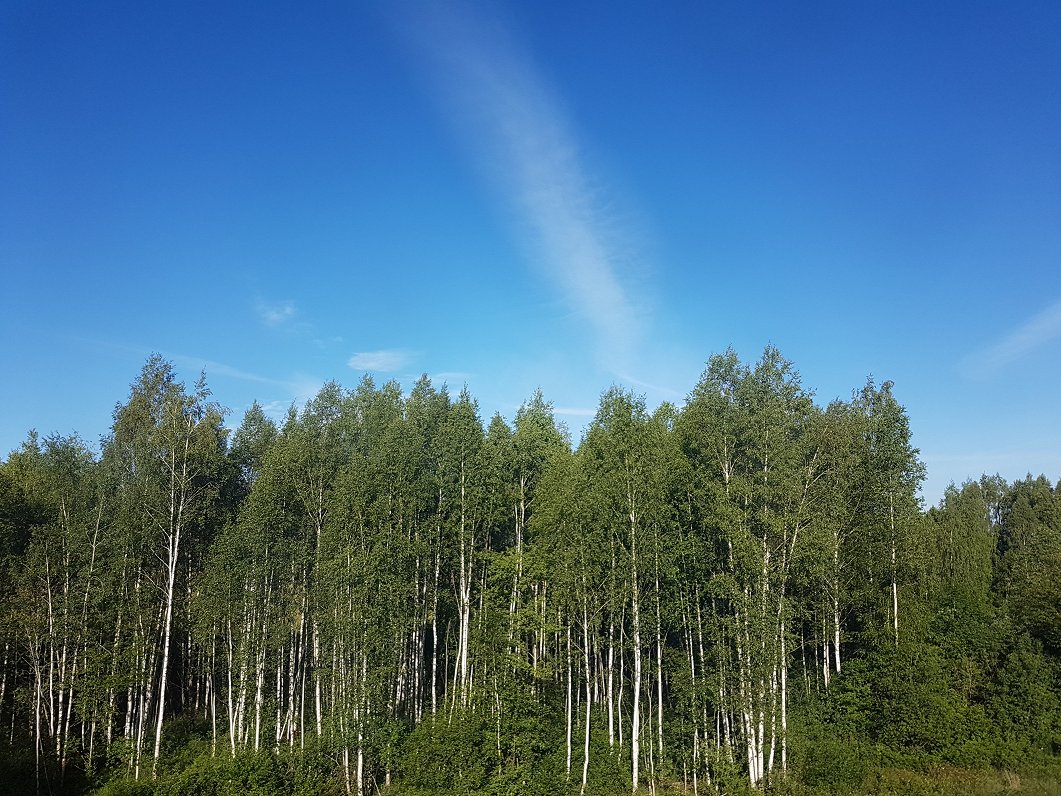According to the Latvian environmental organizations, the amendments to tree felling regulations are being advanced too hastily, especially given that they were withdrawn in 2017. A majority of the environmental organizations are therefore calling for a halt to the advancement and the resumption of the debate on the impact of changes in forest management on the environment.
“The Ministry of Agriculture had already made just such a proposal about the felling of young trees two years ago, and was met with a lot of public opposition. Some ministers even were ready to listen, including the current Minister of Agriculture Kaspars Gerhards, who at the time was the Minister of Environment, was categorically against such amendments. And thus these amendments were withdrawn at the end of 2017,” said Viesturs Ķerus, the head of the Latvian Ornithological Society (LOB), on Latvian Radio.
He points out that the environmental organizations were informed about the repeated submission of amendments only last week at the Forestry Advisory Council of the Ministry of Agriculture, where the association concluded that no additional work had been done on the proposed amendments to reduce environmental risks.
“In terms of risks, it is clear that in the coming decades it will mean a significant increase in the number of trees being felled, which includes this spring and summer, and also means that many more bird nests will be destroyed. At present, LOB estimates that around 50 000 different bird nests are being destroyed every spring, so the negative effect on birds will definitely be on the rise. Moreover, the average age of the forests is also being lowered, and nature has it that the older the forest, the more valuable it is. Bigger trees have bigger birds nesting in them, like the black woodpecker or the black stork, and the longer the forest lives, the more likely it is that different species are going to inhabit it and new ecological niches be created,” said Ķerus.
The Latvian Ornithological Society also collects signatures on the “ManaBalss” platform for an initiative titled “For a Pause in Forestry During the Time of Bird Breeding”.
The World Wildlife Fund, for its own part, draws attention to the fact that the Organization for Economic Co-operation and Development (OECD) has just presented a report stating that biodiversity is declining in Latvia and that its forest habitats are among the most endangered.
In the view of Jānis Rozītis, the director of the fund, the proposals advanced by both the ministry and the industry have been taken out of context.
Arnis Muižnieks, head of the Latvian Forest Owners Association, points out that there have been numerous discussions and debates when the amendments were previously proposed. The forest owners hold that the regulations are crucial because they simplify the conditions of forest management and pose no threat to the environment.
“Forest owners and the industry itself also constitute a large part of society. The previous time it was we who went to the MoA and requested not to advance these amendments further since the elections are coming up the issue will be politicized. Now two years have passed and I think the arguments have stayed the same, so we shouldn't postpone them and pretend that it is not on the agenda. Many of our neighbour countries, which we see as our rivals in forestry, have made decisions on this issue a long time ago, Estonia in 2008, and Finland a few years ago lifted all restrictions, except that if the owner has felled a whole plot, then it must be restored. This is the main way of ensuring that forest areas don't disappear, and we are also moving in this direction, ensuring that owners have more freedom in deciding things about their forests. The important things is always having fertile forest areas,” said Muižnieks on Latvian Radio.
Muižnieks continued that owners are not against larger protected areas, but this would call for adequate compensation, which the sector currently does not have.
The representative of “Latvia State Forests” points out that even if the amendments were made, the situation in the state forests would not change, as other regulations control the maximum scale of felling. Meanwhile, the Ministry of Environment also opposes amendments to the tree felling regulations.
Daiga Vilkaste, the director of the Nature Conservation Department, confirms that the ministry continues expressing objections, as no compromise has been found.
"The main objection is the reduction of the diameter of the felling, which would affect the biodiversity of the pine, spruce, and birch, as the thickness of the trees, which is a very important factor for many rare and endangered forest species, will decrease. there are also concerns about whether a sufficient number of ecological trees are preserved, as they crucial in ensuring biodiversity and transferring it to the next forest that will grow there. In our view, the annotation to the regulations provides no information on risk analysis, and what is recorded there is not enough to make such significant changes," said Vilkaste on Latvian Radio.
The environmental organizations (Latvian Fund for Mature, World Wildlife Fund, and Latvian Ornithological Society) have also sent an open letter to the Prime Minister of Latvia Krišjānis Kāriņš with a request to halt the amendments and create a work group to evaluate their impact on the environment.






























